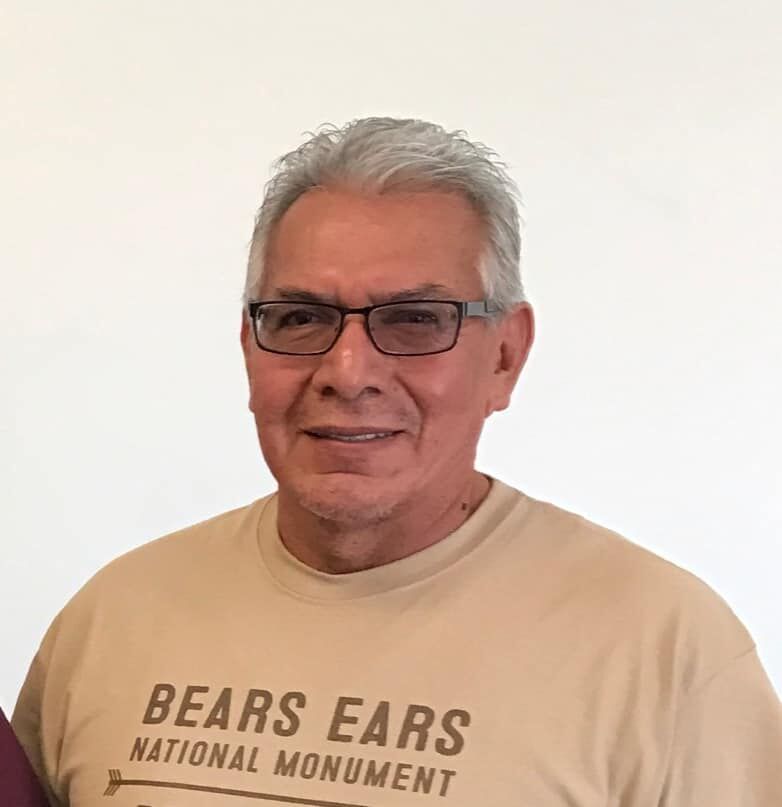Some information may be outdated.
As a translator and consultant for Utah Diné Bikéyah, Woody Lee collected stories. Traveling throughout the Navajo Nation for nearly two years, he listened to elders and experts on traditional hunting, foods, farming, and creation narratives relating to the Bears Ears area for the nonprofit which champions Indigenous leadership and land stewardship.
Now, after six years with the organization, Lee has become UDB’s first Indigenous executive director in the midst of a global pandemic and highly contested general election.
Lee replaces Gavin Noyes, who will transition into the role of technical advisor as Lee settles in.
“I am not leaving due to a lack of passion for this work, but rather stepping aside to allow for Indigenous leadership to emerge and thrive in this critical time and place,” Noyes wrote in UDB’s monthly newsletter on Sept. 25.
Studies show that outdoor and conservationist groups have predominantly white leadership. In 2018, a University of Michigan School for Environment and Sustainability report showed that 80% of U.S. environmental nonprofits’ boards were white, 85% of their members were white and only 3.9% of such organizations even disclosed their racial diversity.
Lee said that much of UDB’s growth is due to Noyes’ work as executive director. An environmentalist familiar with southeastern Utah, Noyes served as executive director of the nonprofit Save our Canyons from 1998 until 2002 before leading UDB in 2014.
“Noyes got us to where we wanted to be and now the staff is majority Native,” said Lee. “The board back then planted the seed for [Indigenous leadership] to happen, and Gavin brought the organization to a high level of being noticed.”
And it has. UDB partnered with the outdoor retailer Patagonia and other conservationist groups to protest President Trump’s 2017 shrinkage of Bears Ears National Monument and raises awareness of issues facing Indigenous communities.
“From the Navajo standpoint, [Bears Ears] is a place of healing where two tribes, or two different people with conflicts or differences, can heal themselves and reconnect with the land,” Lee told the Moab Sun News. “We will work until we can all take care of that land and be neighbors.”
Recently, Lee’s focus has been on increasing Indigenous turnout at the voting booth. While numbers are still being tallied, voter turnout among Native Americans is setting records across the Southwest. Members of the Navajo Nation have been largely credited with helping tip Arizona, a historically red state, toward the Democratic nominee in the 2020 presidential election. Now some hope that President-Elect Joe Biden may restore the Bears Ears National Monument back to its original acreage.
“A lot has happened since Obama’s proclamation,” Lee, a registered Republican, said. “Whether we have a new administration or continue the battle we’re in right now, we’re going to be at a crossroads. Will we take a right turn or a left turn? Or maintain speed ahead?”
Lee is no stranger to the intricacies of public land disputes. During his time as a community consultant for UDB, he translated and presented resolutions pertaining to the Bears Ears cultural landscape to the Navajo Nation Council. He quickly became familiar with “the Utah issues related to Bears Ears and public lands.”
“Now, I’m getting up to speed on the nonprofit world, where you are requesting funds,” Lee quipped about learning the arts of grant-writing and Zoom calls as executive director.
“The interest level is pretty high,” he said. “I wake up in the morning and turn my laptop on and it’s full of emails.”
“That particular area has a lot of ties to a lot of tribes, and we’re not going anywhere,” said Lee.
His hope for the future of UDB and Bears Ears is that one day, the cultural landscape will be protected for all to enjoy. “People come [to Utah] from all over the world, and everyone can take part in taking care of that land — it’s for everybody to share.”
Appreciate the coverage? Help keep local news alive.
Chip in to support the Moab Sun News.





